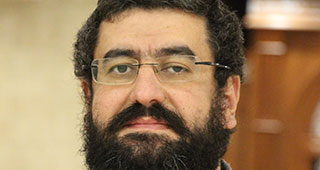25
A. The Prophet Yirmiyahu said: 'By the command of the Most High, neither good nor evil come' (Eichah 3,38). The Midrash explains that this means that ever since the day that G-d "set before you today life and good, etc." (Deut. 30,15), neither good nor evil comes from His command, but rather as a result of man's good or bad deeds.
G-d, for His part, would be happy to shower upon us only goodness. The problem is that we falter and commit sins, and this is what prevents us from receiving His infinite abundance. We take ourselves to places that G-d knows that if He were to give us goodness, it could harm and even destroy us. As such, it is we ourselves who cause suffering to come upon us.
We thank G-d for not despairing of us or giving up. He rather gives us chance after chance, keeping His eye on us even via the troubles we undergo. He measures out the exact amount of suffering that will cause us to return to ourselves and rise up, and thus be worthy of His salvation. What we are thanking G-d for is His constant supervision and providence.

That a Cohen May Not Marry a Divorcee
Rabbi Shmuel Holshtein | 5769

Mourning Customs During the Omer
Rabbi Eliezer Melamed | 5764

Making Our Days Count
A Review of the Halachos of Sefiras HaOmer
Rabbi Yirmiyohu Kaganoff

The Torah’s Instructions to Non-Jews—The Laws of Bnei Noach
Rabbi Yirmiyohu Kaganoff | 5771

Daf Yomi Makkot Daf 11
R' Eli Stefansky | 21 Nisan 5785

Daf Yomi Makkot Daf 8
R' Eli Stefansky | 18 Nisan 5785

P'ninat Mishpat: Unsuccessful Transfer of Yeshiva – part IV
based on ruling 82138 of the Eretz Hemdah-Gazit Rabbinical Courts
Beit Din Eretz Hemda - Gazit | Nisan 5784






